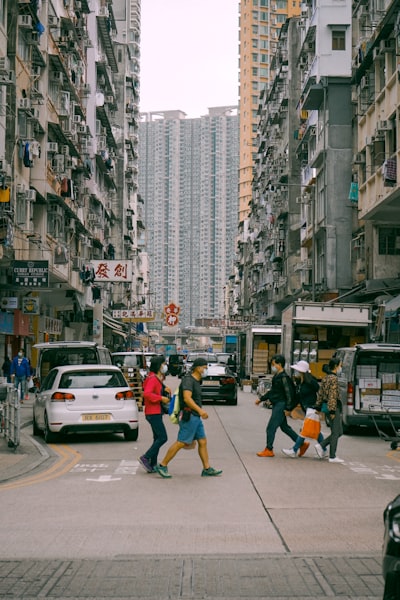The Evolution of Hong Kong's Housing Crisis: A Focus on Transitional Housing Solutions
Hong Kong's housing affordability issues have long made international headlines, but a new wave of regulations aimed at improving living conditions for tenants in subdivided flats is rewriting the city's approach. With government figures pointing to 33,000 subpar subdivided flats that require major renovations under the new standards, the move to earmark 4,200 transitional homes for displaced tenants is attracting widespread attention — and sparking important conversations about housing policy, tenant rights, and the future of urban living in Hong Kong.
Understanding Subdivided Flats: Why Are They Under Scrutiny?
Subdivided flats, or so-called 'cage homes,' are a byproduct of Hong Kong’s relentless space crunch. Often sharing amenities and carved from older rentals, these units have been criticized for poor safety, hygiene, and lack of legal regulation.
Key reasons they’re under scrutiny:
- Failure to meet modern safety and health standards
- Risk posed to tenants due to overcrowding and poor construction
- The need for more dignified, affordable housing solutions
Transitional Housing: A Temporary Solution for Displaced Tenants
To address these urgent concerns, Hong Kong’s government will set aside up to 20% of the city’s 21,000 transitional homes for tenants affected by the coming subdivided flat regulations. Transitional housing gives affected families and individuals a stepping-stone while property owners bring units up to code, or while new public housing becomes available.
Benefits of Transitional Homes
- Stable housing during uncertain times
- Improved safety and sanitary conditions
- Access to support services during relocation
What Do the New Regulations Mean for Flat Owners and Tenants?
For owners:
- Mandatory accreditation of subdivided flats as “basic housing units.”
- Extensive renovations required for units failing to meet standards.
- A transition period for registration and refurbishment, stretching into 2030.
For tenants:
- Potential displacement and the need to secure new accommodation.
- Access to transitional housing and, eventually, upgraded or new public housing.
The Larger Picture: Public Housing Construction & Urban Renewal
Hong Kong’s five-year plan promises 189,000 new public housing flats — a figure that dovetails with the effort to phase out substandard living environments. Observers are watching to see if this ambitious target will be met and how it will impact:
- Urban density and quality of life
- Socioeconomic equality
- The overall rental market
How Does Hong Kong Compare Globally in Addressing Informal Housing?
Globally, cities from New York to Mumbai battle their own crises around informal, unsafe, and unofficial housing. Hong Kong’s regulatory approach — mixing transitional housing with future public builds and strict accreditation — offers a hybrid model that experts may study, debate, and adapt.
Tips for Displaced Tenants: Navigating the Transition
- Stay informed: Monitor updates from the Hong Kong Housing Authority.
- Apply early: Look into transitional housing schemes and register as soon as possible.
- Seek help: Leverage local NGOs and social services for advocacy and support.
Frequently Asked Questions
Q: Who qualifies for transitional housing in Hong Kong?
A: Tenants displaced by incoming subdivided flat regulations and those facing imminent eviction or unsafe living conditions.
Q: When will owners need to register their subdivided flats?
A: The registration process is set to begin in March 2026, with a deadline for compliance by February 2030.
Q: Will there be enough transitional homes to meet demand?
A: The government estimates the current number will meet most needs but demand may fluctuate as regulations take effect.
Key Takeaway
The shift toward accredited, safer housing — supplemented by robust transitional measures — marks a significant step forward in Hong Kong's battle against substandard accommodations. Tenants and owners alike should prepare for the changes, leveraging support and resources as the city ushers in a new era for urban housing.
For more information on transitional housing and public policy reforms, visit the Hong Kong Housing Authority's official website or connect with local legal aid groups for free advice.

Comments
No comments yet. Be the first to comment!